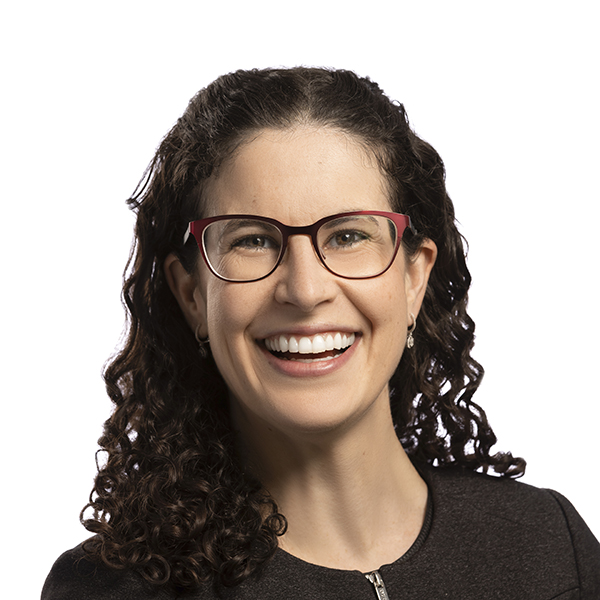Pizza, Patents, and Patterns
Professor Janet Freilich takes an interdisciplinary, and engaged, approach to identifying trends in patent law.

Pizza, Patents, and Patterns
Professor Janet Freilich takes an interdisciplinary, and engaged, approach to identifying trends in patent law.
BU Law students may not have expected pizza to be part of an experiment for their patent law class, but Professor Janet Freilich found a way to incorporate it into her curriculum. She asks students to explore designing their own pizza savers – the plastic piece that keeps the pizza separated from the cardboard delivery box – without infringing on a patent.
Freilich describes her teaching style as “learning through doing.” She starts with the legal doctrine, provides examples, and then encourages questioning, especially in ways that approach the work in a creative manner. She often designs engaging assignments that keep students physically moving.
Professor Freilich joins BU Law from Fordham Law School, where she received the Fordham Law Dean’s Distinguished Research Award. She writes and teaches in the areas of patent law, intellectual property, information law, and civil procedure. This academic year, she is teaching Intellectual Property and a seminar on IP and the Life Sciences. Freilich is also a Technology and Policy Research Institute Faculty Fellow.
Freilich has spent time as a visiting scholar at Massachusetts Institute of Technology’s Sloan School of Management; Harvard Medical School’s Program on Regulation, Therapeutics, and Law; and at Boston University School of Law. She was Harvard Law School’s inaugural postdoctoral fellow in private law and intellectual property with the Program on the Foundations of Private Law. Freilich has published articles in Science, JAMA, The Review of Statistics and Economics, the University of Pennsylvania Law Review, the Virginia Law Review, and others.
Her love of learning about the world— and trying to understand how things work — drive her. Freilich shares, “When I pick a research question, it’s often because I think, ‘this is strange—I wonder how often this happens.’ Much of my work is empirical because I like trying to find patterns or trends in how legal doctrines function.”
There are many patents that have bad information in them. My empirical work shows that about one quarter of life sciences patents include fictional experiments.
Professor Freilich grew up in Vancouver, Canada, and moved to the United States for her undergraduate degree at Cornell University, focusing on molecular biology. While she enjoyed the science side of her studies, she admits she was not good at the labs. Instead, Freilich shifted to look at the bigger picture through policy, and patent law was a natural extension.
Freilich graduated magna cum laude from Harvard Law School, and prior to joining the academy, Freilich practiced law at Covington & Burling LLP.
Today, she enjoys working with students who also have a science background. Most of her research involves large-scale empirical studies, such as looking at the text of patents. Freilich leverages programming to gather the language as it’s used in legal documents. She notes, “There are many patents that have bad information in them. My empirical work shows that about one quarter of life sciences patents include fictional experiments. This is becoming a larger problem as patent text is used to train AI including specific drug development tools and general large language models.”
Freilich is also researching how legal information more broadly, such as property records and SEC filings, is being used to train artificial intelligence. She looks to understand how datasets are constructed to train these AI models.
Freilich has begun to influence policy through the Senate Judiciary Committee’s pending PREVAIL act, which stands for Promoting and Respecting Economically Vital American Innovation Leadership. She contributed research and potential solutions in JAMA. Freilich’s work demonstrated how the act would limit the powers of the Patent Trial and Appeals Board (PTAB) with respect to pharmaceuticals specifically. Drug prices would remain high, and with the PTAB limitations, the public would lose access to affordable and accessible means to challenge potentially invalid patents and hasten generic competition, allowing for price reductions.
While she continues to create unique classroom learning opportunities, Freilich says she is looking forward to more interdisciplinary learning opportunities with Boston University’s graduate schools including Questrom School of Business and the School of Public Health.
